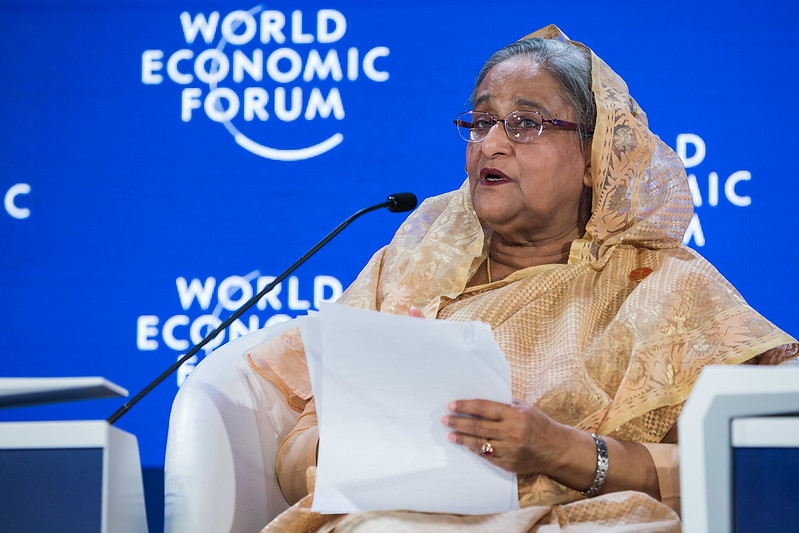
Bangladesh’s Prime Minsiter, Sheikh Hasina, was forced to resign and flee the country earlier today amidst protests which have seen the deaths of over 300 people.
The protests originated in response to a decision by Bangladesh’s Supreme Court which saw the revival of a quota system that awarded 56% of civil service jobs for the descendants of those who fought in Bangladesh’s independence war. Whilst the decision was later scrapped, the protests morphed to encompass a wide range of issues.

Photo by the World Economic Forum
Bangladesh’s Prime Minsiter, Sheikh Hasina, was forced to resign and flee the country earlier today amidst protests which have seen the deaths of over 300 people.
The protests originated in response to a decision by Bangladesh’s Supreme Court which saw the revival of a quota system that awarded 56% of civil service jobs for the descendants of those who fought in Bangladesh’s independence war. Whilst the decision was later scrapped, the protests morphed to encompass a wide range of issues.
The country’s military chief, General Waker-uz-Zaman has said he is temporarily taking control until fresh elections can be called. The BBC notes that Bangladesh’s military holds significant military influence and that the country has faced over 20 coups since independence in 1971.
Under Hasina, Bangladesh sought deeper ties with Sri Lanka. In June she met with Sri Lanka’s Presiden to discuss deepening investments in tourism and in the aftermath of Sri Lanka’s economic crisis Bangladesh provided the country a currency swap of $200 million. In 2022, Bangladesh’s Foreign Minsitry also opposed the UNHRC resolution on Sri Lanka, which sought to advance accountability, by claiming it was “politically motivated”.
Read more here.
